Engine Invaders: How To Keep Pack Rats Out of Your Car
With the desert climate starting to cool off at night in states like Arizona, there’s a new pest to look out for — pack rats. But unlike most pests, your home isn’t the most likely place you’ll find one.
While most mice look to get indoors during the winter, these rodents are infamous for seeking shelter under car hoods. Letting these furry critters hole up in your engine for a few nights may sound harmless, but that couldn’t be further from the truth. If you’d like to avoid an expensive repair bill, use this guide to help your car survive pack rat season in Arizona.
Why Pack Rats Target Your Engine
Also known as wood rats, pack rats are nocturnal rodents that gather and hoard items to build nests. They’re attracted to warm, dark spaces, and an engine bay provides the perfect shelter during chilly nights. Besides warmth, your car may also offer a supply of leaves and twigs, which pack rats will use to build their nests.
Unfortunately, a pack rat making a cozy hideaway in your car is the least of your worries. That’s because these rodents don’t just camp out — they chew through wiring, hoses, and insulation, damaging your car and making it unsafe to drive.
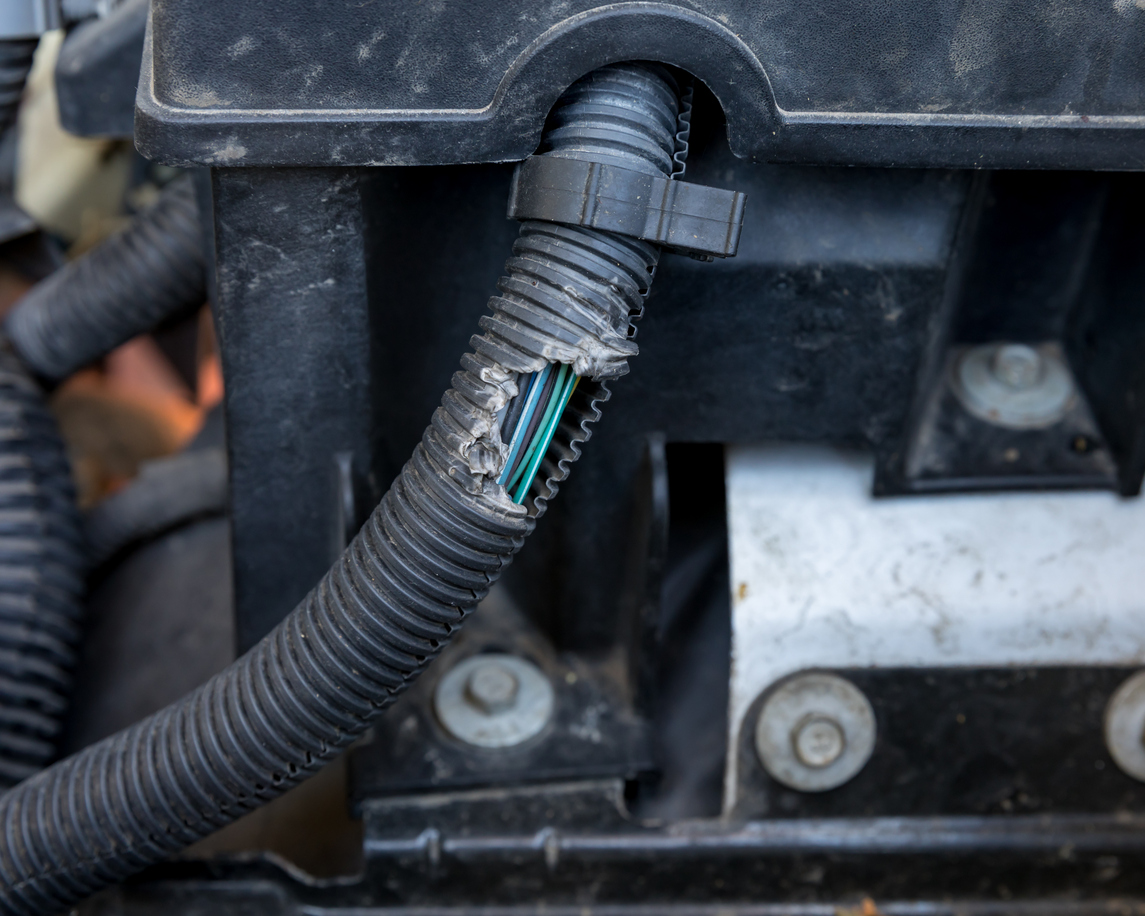
The Destruction Pack Rats Can Cause
If you don’t trust mechanics, a pack rat is the last one you want under your hood.
Like most mice and rats, pack rats chew and gnaw on almost anything they can get their mouths on. With all the wires and hoses under your car hood, an engine bay is like a charcuterie board for a pack rat.
For an appetizer, they may gnaw on electrical wiring, sometimes attracted to the soy-based coating that many manufacturers use. This type of damage can lead to anything from malfunctioning lights to total engine failure. They may also chew through hoses, which can result in fluid leaks that compromise your vehicle’s performance. Brake lines and coolant hoses are especially vulnerable, and any damage to these can pose a serious safety risk.
As they search for nesting materials, pack rats often tear apart insulation or even parts of the air filters. This can lead to reduced airflow in your engine or even fires if debris comes into contact with hot engine parts. Occasionally, pack rats also target battery cables, which can result in short circuits or a vehicle that’s unable to start.
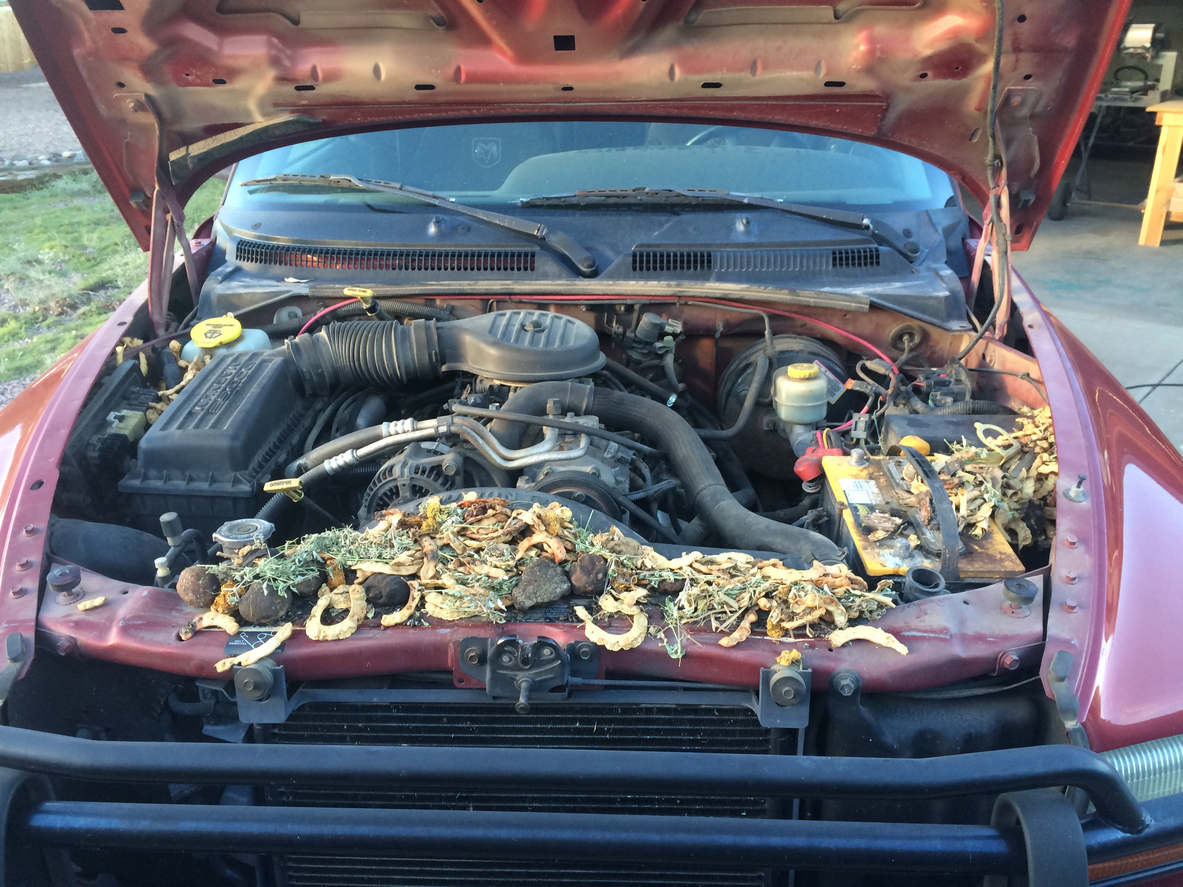
Signs of a Pack Rat Infestation in Your Vehicle
If a high repair bill isn’t in your budget, being able to recognize when a pack rat is under your hood is key.
As pack rats start to settle in, it can be hard to spot them, but there are still some telltale signs. Strong odors, particularly from droppings or urine, are often a dead giveaway. If you’re suspicious of what you’re smelling, check around or inside your engine bay for droppings or bits of debris. If you see leaves and twigs in places they aren’t supposed to be, it’s a good indicator a pack rat is setting up camp.
Of course, if a pack rat has settled in for a few days, the signs are more obvious. Chewed wires, hoses, or other visible gnawing damage means you’ve picked up a hitchhiker. You may also hear strange noises coming from your car while driving.
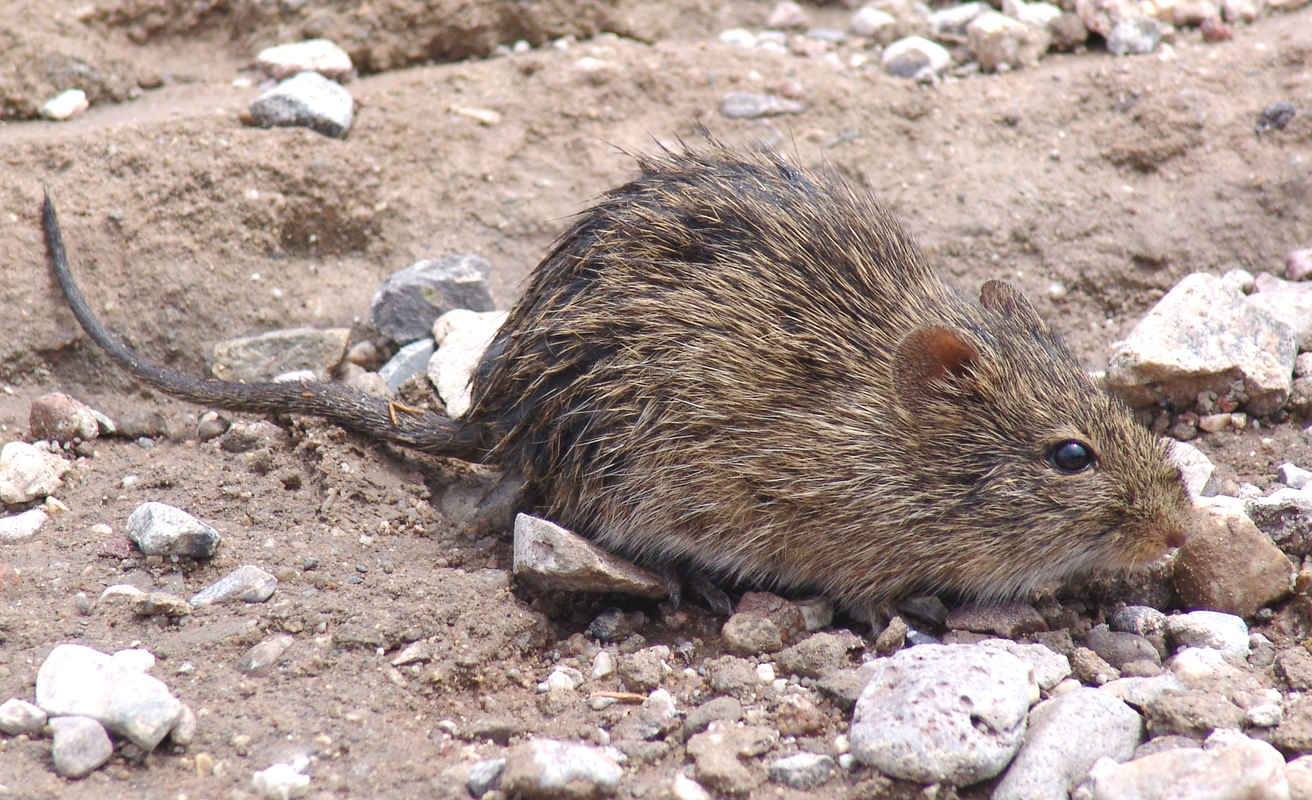
How To Keep Pack Rats Out of Your Car
By getting ahead of pack rats, you can reduce the chances one will make your car its new home.
1. Assess Your Parking Situation
Parking in a closed garage adds an extra layer of defense, making it much harder for a pack rat to get into your vehicle. If that isn’t an option, there are ways to keep the area where you park outside more secure.
2. Eliminate Food Sources
Avoid leaving any food or trash in or near your parked vehicle, as pack rats are naturally attracted to food sources. It’s also a good idea to park away from trash cans to reduce the chances of drawing a pack rat near your vehicle.
3. Use Lighting to Your Advantage
Since pack rats are nocturnal, consider leaving a light on under or near your car at night. The brightness can discourage them from making a cozy home in your engine bay.
4. Rodent-Proof Your Garage
If your garage itself has a rodent problem, setting traps or using deterrents can also help keep pack rats away. Natural scents like peppermint oil, cayenne pepper, and garlic are a good place to start. Spraying these scents around the engine bay or placing pouches with these odors near your parked car can deter pack rats effectively.
5. Look Under the Hood
To catch a pack rat infestation before it begins, make it a habit to inspect your engine bay regularly, especially during colder months when pack rats are more likely to seek shelter. Checking under the hood every few days can help you catch any early signs of rodent activity and prevent damage.
6. Protect Wires and Hoses
If you’d like to be extra cautious, consider wrapping wires and hoses in rodent-resistant tape. This special tape has a coating that can deter rodents from chewing through it and protect vital parts of your car.
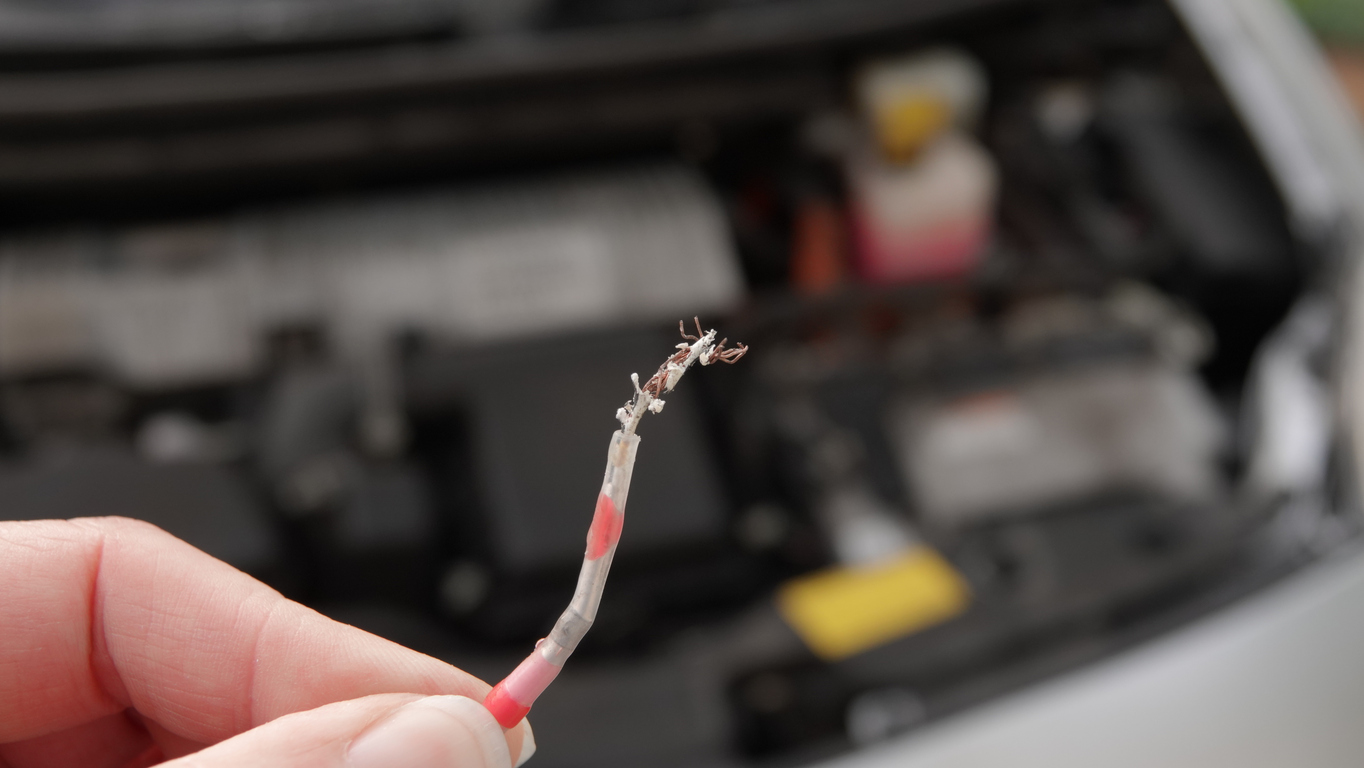
What To Do if You Find a Pack Rat in Your Car
Whether you see the pack rat or just find signs of one, it’s essential to address the problem immediately. Start by removing any nesting materials you find and clean the area. Take extra precautions by wearing gloves so you don’t come into contact with any droppings or urine. If you find chewed wires or any other signs of damage, take your car to be inspected by a professional.
Send Pack Rats Packing
Are pesky pack rats driving you crazy? Whether you’re dealing with an infestation under your hood or in your home, contact us for a quick and efficient removal.

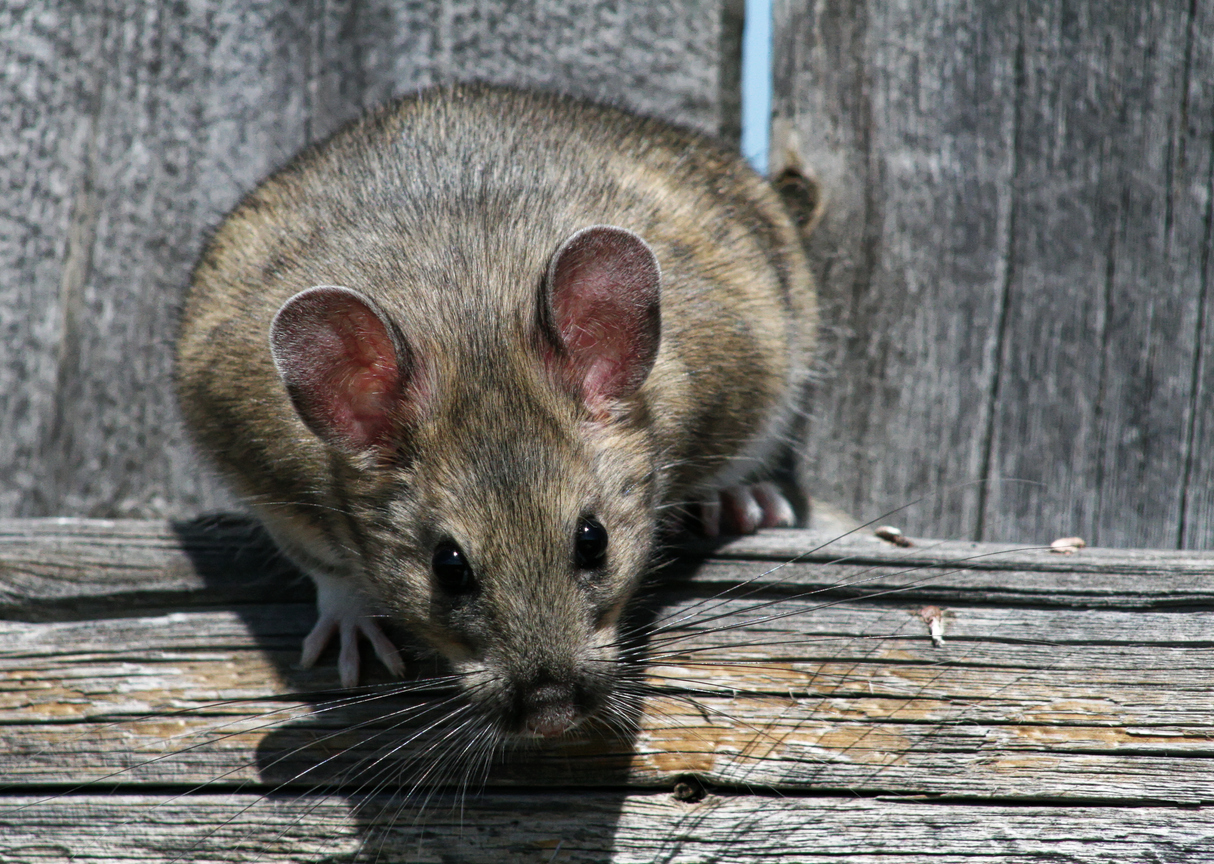




 YouTube
YouTube Facebook
Facebook Twitter
Twitter